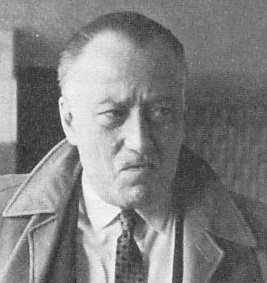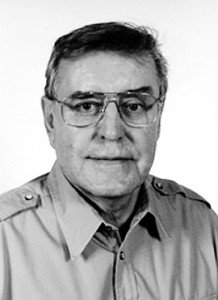Gerda Munsinger and her Canadian Affair

It’s hard to pick out the truth, in the wake of a large public scandal. So much has been speculated on that it hides the actual facts. But it doesn’t help when one of the principals in the case is a mysterious figure, and one with no interest in courting the limelight. Such a person is Gerda Munsinger. Some said she was a spy, but it hardly mattered in the end. All that mattered was who she could have been – a shadow that had far more impact than who she really was.
Details of Gerda’s early life are difficult to come by – a consequence of her having been born in Eastern Prussia in 1929. The city she was born in was called Konigsberg, though the city was first destroyed, and then conquered, in World War 2. Nowadays the city that stands in its place is called Kaliningrad and populated by Russians, after the original inhabitants were deported following the war. This widescale destruction may explain the confusion around Gerda’s early years, as may the Iron Curtain that lay across Europe by the time she came to media attention. We know she was born as Gerda Heseler on September the 10th, 1929, at least. Her father was a said to be a member of the Communist Party of Germany, presumably before it was banned by the Nazis in the aftermath of the burning of the Reichstag. If he was he might have been sent to a concentration camp, which could be where he died in 1943. By that time it was becoming clear that Eastern Prussia was a dangerous place to be. In 1944 the Red Army of Russia invaded, and Gerda fled to Berlin. She later said that she had been raped by Russian soldiers during the occupation, using this to rubbish claims that she was a Soviet agent. On the other hand Western intelligence officers would later believe that she had collaborated with the occupiers, and even had an affair with a KGB officer. She crossed the border frequently, and in 1949 she was arrested by the border patrol on suspicion of being a Russian spy. Whether she was convicted or not is uncertain, but what is certain is that she decided that she wanted to get out of Germany – and America was her goal.

She began to learn English, and got a job at a hotel as a secretary where she could practise by writing letters for the guests. She would later boast that President Eisenhower had been a guest at the hotel she worked, and that she had written letters that went out with the President’s signature. In 1952 she applied for a visa to America, but was refused entry. Her espionage arrest along with the intelligence reports made her an undesirable, and she was rejected on those grounds as well as for crimes of “moral turpitude.” This would imply that she may have also had a criminal record for prostitution, and that would fit with her later behaviour. Rebuffed, she applied for a visa to Canada and was refused on the same grounds. In 1953 she married an ex-US serviceman named Michael Munsinger, but when he returned to the US in 1954 she was refused admission. The two divorced amicably, and he later recalled her as “very friendly and warm”. In 1955 she applied for a visa to Canada once again, as the form did not require her to give her maiden name. She was accepted, and in August she set off on a ship operated by the Arosa line, a company which specialised in the trans-Atlantic immigrant trade.
Once in Canada she headed to Montreal. A condition of her visa was that she show evidence of arranged employment in the country, and so she had signed a contract to work as a maid for a local doctor. After six months the contract expired and she left the job. She worked a variety of jobs for the next few years, including working in a hotel once more. One job she had was as a “hostess” at the Chez Paree nightclub, at the time a place with a shady reputation and ties to organised crime. [1] She also worked as a call girl, and used her other jobs (as well as social events) to pick up clients. In August 1958, three years after she came to Montreal, she was at a golf course when she met a politician named Pierre Sevigny. The two began an affair, one which included him paying the rent on her apartment and co-sponsoring her application for Canadian citizenship in 1960. The other signatory on the application was George Hees, another politician. Both were ministers in John Diefenbaker’s government, and so this activity drew the attention of the Royal Canadian Mounted Police. When they ran a background check on Gerda, they found that she had been flagged by the CIA as a potential espionage threat. They informed the Prime Minister’s office, and he told Sevigny that the relationship had to end. Gerda herself was interviewed by the Mounties, and though they were satisfied that she had not been using the relationship to find out secrets, they did make threats to deport her for not disclosing her previous attempts to get a visa on her admission form. Gerda quietly left Montreal in 1961, amid rumours among her friends that she had been arrested for passing a bad cheque, or that she had been hospitalised with leukaemia.

That would have been the end of that, if it had not been for a notorious parliamentary indiscretion five years later. Sevigny had resigned in 1963, as part of a general collapse of the Progressive Conservative party prompted by the issue of whether NATO nuclear weapons should be based on Canadian territory. The loss of party unity had cost them the 1963 election, and so by 1966 Diefenbaker was the leader of the opposition. In that role he was attacking the government, and specifically Justice Minister Lucien Cardin, over their handling of a recent espionage case. Cardin struck back, suggesting that Diefenbaker didn’t have the most impeccable record. “What about Munsignor?” he asked. The press and public, who had no idea what he was talking about, perked their ears up. What about Munsignor, indeed.
At first the press speculated wildly about what this could mean. One wild theory invented a Quebecois priest with mob ties, known only as “Monsignor”. Cardin confused matters further when he clarified during a press conference that the correct spelling was “Munsinger”, but gave Gerda’s first name as “Olga”. His testimony to them was calculated to throw things into the worst light for Diefenbaker, claiming that she had a definite background as a spy and that Diefenbaker had deliberately blocked any investigation into the affair. (This was untrue, as the RCMP had investigated but found no grounds to proceed.) There are some indications that this was all deliberate misinformation, aiming to push the camera off the scandals around finances that had rocked the Liberal party and onto Diefenbaker. The Canadian media, desperate for their own Profumo affair, were happy to oblige.

At first, it was thought that Gerda was dead. Cardin and his party definitely thought so, and he repeated the fact in several newspaper conferences. Unfortunately for him, while he was doing so Bob Reguly, an investigative journalist with a reputation for tracking down people involved in a story, was already on his way to Munich. Once there, he simply looked Gerda up in the phone book and knocked on her door. On the 11th March, one week after Cardin had namedropped her in parliament, the Toronto Star carried the headline “Star Man Finds Gerda Munsinger”. With a live Gerda able to refute the intimations that she had been a Russian spy, the neat scandal that Cardin and his party had tried to manufacture was complicated enormously. Still, that didn’t stop them from holding the course – and indeed, may have freed their hand. To speak ill of the dead would be crass, but with Gerda alive her character could be tarred with as thick a brush as they could find. The government ordered a judicial inquiry, headed by Judge Wishart Spence. His report was simultaneously damning and irrelevant. While it gave the worst possible interpretation of Gerda’s character, portrayed Sevigny as a lothario and criticised Diefenbaker for his leniency in allowing him to remain in office, it was unable to find that any breach of security or illegal activity had taken place. Public opinion began to turn on the government, with many feeling that the whole affair had been nothing more than a muckraking exercise. Sevigny was vociferous and passionate in his criticism of the Spence Report. Prime Minister Pearson, desperate to distract attention from the scandal, started a national debate on the death penalty as a distraction – one which led eventually to Canada abolishing capital punishment. Still, it worked, and eventually the whole scandal faded. Canadians even eventually became perversely proud of the whole thing, feeling it helped to alleviate their national stereotype as staid and boring.

Gerda, in the meantime, continued to live her life in Germany. She married a Munich tobacco merchant named Ernst Wagner in 1968. In 1974 she returned to Canada to visit a friend, and was interviewed on CBC. She gave her own side of the story, declaring that the whole scandal had been blown out of all proportion. Sevigny she remembered fondly, and claimed that he had been badly maligned for a mere indiscretion. She also spoke of plans to write her autobiography, though sadly that never came to pass. Instead she returned to Munich, where she lived a quiet life. At some point she married again, and it was as Gerda Merkt that she died in 1998. In the intervening years she became more a figure of myth than a person – a symbol of international intrigue and excitement. There was even a film based on her life named Gerda released in 1992, though we don’t know what she thought of it. One suspects, from seeing her interviews, that she wouldn’t have much cared. All we know, really, comes from this brief window into her life – where for a few bright years, she lived among the bright lights and rubbed shoulders with the great and the good.
[1] And nowadays a strip club with equally tangential ties to organised crime.
